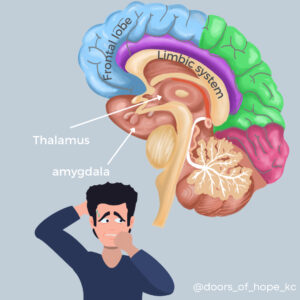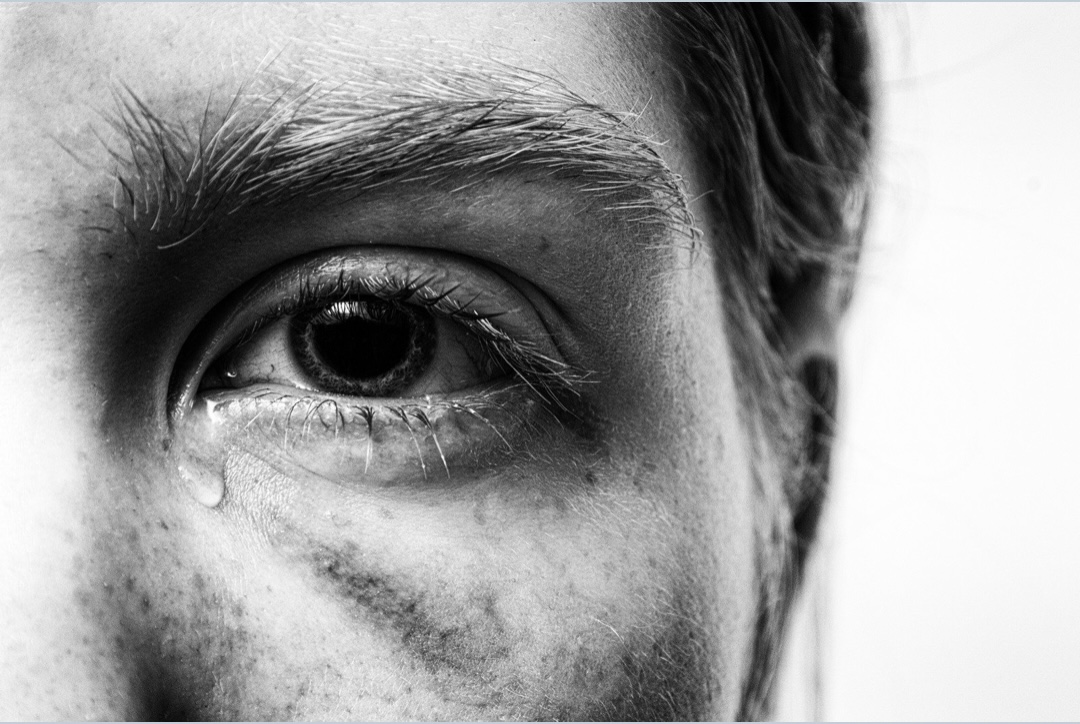By Reshma Freeman, LPC, LCPC
What exactly is trauma? According to a 2000 study, “psychological trauma is a unique individual experience of an event, series of events, or a set of enduring conditions in which an individual’s emotional experience is overwhelmed” and/or “an individual experiences a threat toward his/her life, body integrity, or sanity.” There are 3 different levels of trauma known as acute, chronic, and complex trauma. Acute trauma is a single event, chronic trauma is an event that is repetitive and occurs over a period of time, and complex trauma is the exposure to multiple forms of traumatic experiences that can occur repetitive over a long period of time. All of these types of trauma have short and long term effects on our brain and body.

What are the short-term effects of trauma on the brain and body? When an individual experiences a disturbing event, the environmental information is examined by the frontal lobe (the individual’s “binoculars”) which is essentially responsible for judgment and decisions. The frontal lobe passes the information to the thalamus which processes sight, sounds, smells, taste and touch in the environment. The thalamus passes the information to the amygdala (emotional response system). If the amygdala, known as our “fire alarm”, recognizes an emotional experience as overwhelming or a threat, the “fire alarm” goes off informing other aspects of our limbic system, the reactive part of our mind, to fight, flight, or freeze as a response. Additionally, the frontal lobe, the wise part of our mind, goes completely offline in order for the fight, flight, or freeze to be activated.
Specific glands (pituitary gland and adrenal glands) are notified by the nervous system of what hormones to produce to assist our brain and body with surviving through the disturbing event. Adrenaline is produced that speeds up the heart rate, blood flow to muscles, blood pressure, increases respiratory rate, and the individual’s alertness level. Other hormones that are released (norepinephrine and cortisol) suppress the digestive system and the immune system in order for our body to preserve the energy that is needed to survive through the disturbing event. The release of these three hormones is often experienced in the individual as trouble breathing, restlessness, dizziness, digestive discomfort, chest pressure, sweating etc.
As the limbic system and frontal lobe detects safety, it then activates the parasympathetic nervous system to assist our brain and body to return to a balanced state regulating heart rate, blood flow to the muscles and organs, and respiratory system (Van der Kolk, 2014).
In sum, the short term effects of trauma on the brain and body are as follows: The frontal lobe perceives a threat and sends that information to the limbic system which processes the information further and notifies the appropriate parties to release hormones that assist us in a fight, flight, or freeze response. These hormones produce uncomfortable physical changes within the body. As soon as safety is perceived, the body begins to balance itself back out. This process may repeat each time a similar threat is perceived.
What are the long-term effects of trauma on the brain and body? The memory of a disturbing event is stored in the amygdala in the right side of the brain hemisphere. It is stored separately from the autobiographical or “happy” memories in the hippocampus (memory system) on the left hemisphere. Traumatic memories are precipitated by specific triggers and are not condensed (Van der Kolk, 2014). They are dissociated. Therefore, if a specific emotion or physical sensory information is triggered, the brain and body will re-experience the disturbing event as if it is occurring again in the present moment. The same hormones will continue to be released that can lead to the exhaustion stage. At the exhaustion stage, the body will feel exhausted, depleting all resources. Therefore, an individual may experience health problems, such as heart problems, illnesses, etc. as a result of the limbic system being overactive.
These disturbing events can continue to be an active internal memory that can be disruptive to an individual’s lifestyle. If an individual experiences a trigger, it can result in a bodily reaction, such as an upset stomach or a panic attack. This can become a vicious cycle of perceived threat and brain/body response that becomes more hypersensitive over time if that cycle is not interrupted in some way. One way to do this is for the individual to process the disturbing memories through specific therapeutic approaches well enough to be integrated or associated into the hippocampus (memory system) to return an individual’s brain and body to equilibrium. To get ahead of the devastating effects of trauma on the brain and body, call and see a trauma specialist here at Doors of Hope Counseling today!
References
Van der Kolk, B. (2014). The Body Keeps the Score. Published in New York, NY. Penguin Books.

